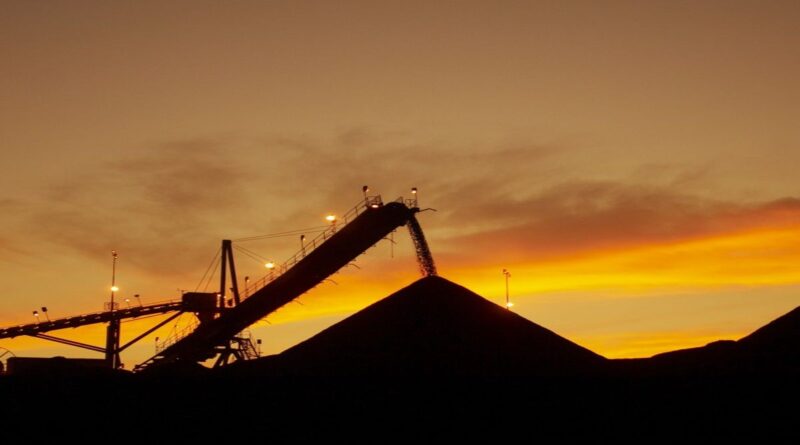Glencore provides background information on coal demerger
It has always been our view that the question of whether to demerge our coal business is one for our shareholders, not only because shareholder approval for a demerger is legally required, but more importantly because investment in coal is often a question of investment preference, requiring the ongoing gathering of shareholder views.
In our announcement in November 2023 of the agreed acquisition of a 77% interest in Elk Valley Resources (EVR), Glencore stated that its intention was to demerge the coal and carbon steel materials business. This was based on positive feedback that Glencore had received following its initial approach to Teck in early 2023 in which Glencore had first proposed the demerger of the combined coal and steel materials business in the context of that acquisition.
Following the November announcement, Glencore started to receive feedback that shareholder preferences may have evolved and that many shareholders were no longer supportive of a demerger, in many cases due to evolving views on ESG, increased support for Glencore’s climate strategy of a responsible decline of its thermal coal business and the recognition, which also drove Glencore’s acquisition of EVR, of the difference between steelmaking coal and thermal coal.
Accordingly, Glencore decided that it would make sense following closing of the EVR transaction to run a formal consultation to assess current shareholder views regarding retaining or demerging the coal and carbon steel materials business.
Glencore’s Chief Executive Officer, Gary Nagle, commented:
“We are pleased to report strong strategic achievements for the Group over the year to date. Our Industrial portfolio has been further streamlined with the sale of our Volcan stake and strengthened with the addition of a 77% interest in Elk Valley Resources (EVR). Our updated Climate Action Transition Plan (CATP) received more than 90% shareholder support at our 2024 AGM, the Swiss and Dutch government investigations have been resolved and our 2024 production guidance has been maintained and enhanced, with a skew to the second half of 2024.
“Critically, we have also clarified the immediate future of our coal and carbon steel materials business. Following completion of the acquisition of EVR in early July, we undertook an extensive consultation with shareholders and based on the outcome of that process and the Group’s own analysis, Glencore’s Board, considering both risk and opportunity scenarios, endorsed the retention, rather than demerger, of the coal and carbon steel materials business, as currently providing the optimal pathway for demonstrable and realisable value creation for Glencore shareholders.
“Some shareholders stated that this was a decision for the Board alone to make, but of the others, the overwhelming majority had a clear preference for retention. This was primarily on the basis that retention should enhance Glencore’s cash-generating capacity to fund opportunities in our transition metals portfolio, such as our copper growth project pipeline, as well as accelerate and optimise the return of excess cash flows to shareholders.
“Against the backdrop of lower average prices for many of our key commodities during the period, particularly thermal coal, our overall Group Adjusted EBITDA of $6.3 billion was 33% below the comparable prior year period, however Funds from Operations were up 9%, due to the timing of income tax payments . We reported a Net loss attributable to equity holders of $233 million, after recognising $1.7 billion of significant items, including c.$1.0 billion of impairment charges.
“Reflecting healthy cash generation and after funding $2.9 billion of net capital expenditure and $1.0 billion of shareholder returns, Net debt, including Marketing-related lease liabilities, finished the first half at $3.6 billion, down $1.3 billion compared to $4.9 billion at the end of 2023.
“From Net debt of $3.6 billion, accounting for Marketing-related lease liabilities of $1.0 billion, H2 cash outflows of $6.9 billion for the EVR acquisition and the $0.8 billion for the 2nd tranche of the shareholder distribution due, all else being equal deleveraging of just $0.3 billion would be required to reach the reset c.$10 billion net debt cap under our framework for excess return top-up payments, compared to at least $5.3 billion of deleveraging that would have been required under the original demerger scenario.
“This relatively modest gap of $0.3 billion, together with the $1 billion Viterra cash disposal proceeds expected to be received over the next several months and noting the healthy current spot illustrative annualised free cash flow generation of c.$6.1 billion, augers well for potential top-up shareholder returns, above our base cash distribution, in February 2025.
“The strength of our diversified business model across marketing and industrial has proven itself adept in a range of market conditions, giving us a solid foundation to successfully navigate the near-term macroeconomic uncertainty. We continue to remain focused on operating safely, responsibly and ethically and creating sustainable long-term value for all our stakeholders.”




